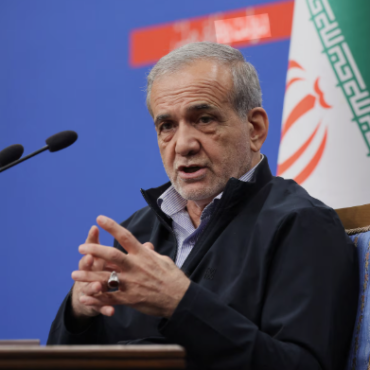President Bola Tinubu on Wednesday declared a nationwide security emergency, directing the military, police and intelligence services to immediately expand recruitment and deploy thousands of additional personnel to areas facing persistent attacks. The announcement followed an intense week marked by multiple kidnappings and deadly assaults in several states, heightening fears about the country’s deteriorating security climate. He also urged the National Assembly to begin the process of legalising state police, arguing that decentralised security would allow quicker response times and better collaboration with local communities.
But rather than rallying behind the executive as is often the case during national crises, many federal lawmakers openly criticised the administration’s ongoing negotiations with armed groups responsible for the recent wave of abductions. Members of the Senate and House of Representatives questioned why government officials were engaging the bandits who abducted students and worshippers in separate incidents in Kwara, Kebbi and Niger States. Their disapproval intensified when it emerged that soldiers had been withdrawn from the Government Girls Comprehensive Secondary School in Maga, Kebbi State, only hours before gunmen stormed the premises and kidnapped twenty-four students. During that attack, the vice principal, Hasan Makuku, was shot dead while the principal was severely injured. Although dozens of the girls managed to escape, many are still missing.
The country was further shaken by another mass abduction when heavily armed men invaded St. Mary’s Catholic School in Niger State, taking more than three hundred pupils and a dozen teachers just days after the Kebbi schoolgirls were seized. In yet another incident, gunmen attacked a church in Kwara State, killing two worshippers and kidnapping nearly forty others. Although the abducted church victims were eventually released, the string of attacks triggered widespread panic and forced numerous schools to shut down across nine northern states. The Federal Government responded by ordering the temporary closure of forty-one Federal Unity Colleges as a protective measure.
Amid public anxiety, the Presidency defended its decision to negotiate with the kidnappers, insisting that the primary objective was to ensure the safe release of all hostages. Government officials argued that a direct military assault on the bandits’ hideouts could have resulted in mass casualties, as the abductors were believed to be using the victims as human shields. The explanation, however, did little to calm lawmakers who worried that repeated negotiations might empower criminal groups and erode the state’s authority.
The Senate chamber was gripped by tension as lawmakers debated the government’s handling of the crisis. Some senators warned that Nigeria was “under siege” and risked losing the confidence of its people if decisive measures were not taken. Their exchanges came just hours after the chamber had earlier commended the release of the abducted victims, creating a stark contrast between official gratitude and growing alarm. The senator who sponsored the earlier motion—focused on attacks in the Kwara–Kogi corridor—again expressed frustration over the failures that led to the killings and mass kidnappings. He raised concerns that the withdrawal of security personnel from the Kebbi school had still not been explained.
Several lawmakers echoed this concern. The Deputy Senate President noted that the scale of violence suggested the need for international partnerships, arguing that Nigeria must enlist global expertise if it hoped to reverse the crisis. The Senate Leader also described the situation as a defining moment for the country’s future and warned that complacency could lead to a catastrophic collapse in public order. He lamented that security agencies provided no details about whether any terrorists were neutralised during the rescue operations, questioning the completeness of the intelligence reports reaching the legislature.
Another senator called for an internal review of the National Assembly’s own oversight structures, arguing that the committees responsible for security and intelligence had not delivered the level of scrutiny required at such a critical time. He insisted that if the lawmakers wanted the President to reorganise the national security architecture, they must also demonstrate the same commitment by strengthening their own systems.
But some lawmakers rejected attempts to shift responsibility to past administrations or distant bureaucracies. One senator pointed out that the current government must answer for the operational failures occurring under its watch, especially the questionable withdrawal of troops from the Kebbi school shortly before the attack. He questioned how such a withdrawal could occur without the knowledge of the nation’s commander-in-chief.
The Senate President expressed alarm over what he described as deepening internal sabotage within security formations. He cited reports that the location of a senior military officer killed in Borno had been compromised from within, raising fears that moles were undermining national defence. He also questioned why the bandits were able to carry out the Kebbi school attack despite a security advisory explicitly warning of possible threats.
The chamber grew even more agitated when a senator from the minority caucus declared that Nigeria was losing its global reputation due to the frequency of violent attacks. His remarks were met with heavy protests from ruling party senators, forcing the presiding officer to intervene. As debates intensified, some lawmakers insisted that security agencies knew more about the movements of the terrorists than they were admitting, prompting the Senate President to warn against introducing religious or regional sentiments into a crisis that affects all Nigerians.
One senator defended the President, arguing that the administration was battling unprecedented challenges while working to rescue the kidnapped victims. He demanded a full investigation into the order that led to the troop withdrawal in Kebbi, warning that any officer responsible should be charged with aiding terrorism. He also called attention to inconsistencies in the justice system, noting that some convicted terrorists received lighter penalties than citizens who killed bandits in self-defence.
While the Senate battled internally, a coalition of members of the House of Representatives released a strongly worded statement condemning the Federal Government’s strategy. They accused the administration of neglecting its responsibility to protect citizens and criticised what they described as “back-door concessions” to violent groups. The lawmakers argued that negotiating with armed criminals not only rewards their behaviour but also encourages further kidnappings, referencing the escalating incidents in Kano, Kwara, Kebbi, Niger and other states. They warned that no stable country had successfully relied on dialogue with violent non-state actors as a primary security strategy.
The coalition of lawmakers from across the six geopolitical zones insisted that the government must take decisive military and intelligence action to dismantle the criminal networks responsible for the wave of terror. According to them, Nigerians were living in daily fear, and the situation required far more decisive leadership than the administration had demonstrated so far. They argued that the government’s reliance on negotiation sent a dangerous signal and risked plunging the nation into deeper instability.
As the debate raged across both chambers, the wider national mood reflected frustration, grief and a demand for immediate action. President Tinubu’s declaration of a security emergency marked the most sweeping federal intervention in recent times, but the criticism from lawmakers indicated the depth of concern within the political establishment. With schools closed, communities ravaged and thousands of families living in fear of further attacks, the pressure on the government to restore order has never been greater.
The coming weeks will determine whether the new security measures—expanded recruitment, intensified deployments and potential legal backing for state police—will succeed in turning the tide against the escalating violence that now threatens the stability of the entire nation.






Post comments (0)